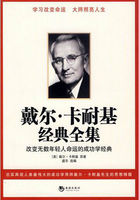Time, in consequence, is our veritable master, and it suffices to leave it free to act to see all things transformed.At the present day we are very uneasy with regard to the threatening aspirations of the masses and the destructions and upheavals foreboded thereby.Time, without other aid, will see to the restoration of equilibrium."No form of government," M.Lavisse very properly writes, "was founded in a day.Political and social organisations are works that demand centuries.The feudal system existed for centuries in a shapeless, chaotic state before it found its laws; absolute monarchy also existed for centuries before arriving at regular methods of government, and these periods of expectancy were extremely troubled."4.POLITICAL AND SOCIAL INSTITUTIONS
The idea that institutions can remedy the defects of societies, that national progress is the consequence of the improvement of institutions and governments, and that social changes can be effected by decrees-- this idea, I say, is still generally accepted.It was the starting-point of the French Revolution, and the social theories of the present day are based upon it.
The most continuous experience has been unsuccessful in shaking this grave delusion.Philosophers and historians have endeavoured in vain to prove its absurdity, but yet they have had no difficulty in demonstrating that institutions are the outcome of ideas, sentiments, and customs, and that ideas, sentiments, and customs are not to be recast by recasting legislative codes.
A nation does not choose its institutions at will any more than it chooses the colour of its hair or its eyes.Institutions and governments are the product of the race.They are not the creators of an epoch, but are created by it.Peoples are not governed in accordance with their caprices of the moment, but as their character determines that they shall be governed.
Centuries are required to form a political system and centuries needed to change it.Institutions have no intrinsic virtue: in themselves they are neither good nor bad.Those which are good at a given moment for a given people may be harmful in the extreme for another nation.
Moreover, it is in no way in the power of a people to really change its institutions.Undoubtedly, at the cost of violent revolutions, it can change their name, but in their essence they remain unmodified.The names are mere futile labels with which an historian who goes to the bottom of things need scarcely concern himself.It is in this way, for instance, that England,[9] the most democratic country in the world, lives, nevertheless, under a monarchical regime, whereas the countries in which the most oppressive despotism is rampant are the Spanish-American Republics, in spite of their republican constitutions.The destinies of peoples are determined by their character and not by their government.I have endeavoured to establish this view in my previous volume by setting forth categorical examples.
[9] The most advanced republicans, even of the United States, recognise this fact.The American magazine, The Forum, recently gave categorical expression to the opinion in terms which Ireproduce here from the Review of Reviews for December, 1894:--"It should never be forgotten, even by the most ardent enemies of an aristocracy, that England is to-day the most democratic country of the universe, the country in which the rights of the individual are most respected, and in which the individual possesses the most liberty."To lose time in the manufacture of cut-and-dried constitutions is, in consequence, a puerile task, the useless labour of an ignorant rhetorician.Necessity and time undertake the charge of elaborating constitutions when we are wise enough to allow these two factors to act.This is the plan the Anglo-Saxons have adopted, as their great historian, Macaulay, teaches us in a passage that the politicians of all Latin countries ought to learn by heart.After having shown all the good that can be accomplished by laws which appear from the point of view of pure reason a chaos of absurdities and contradictions, he compares the scores of constitutions that have been engulfed in the convulsions of the Latin peoples with that of England, and points out that the latter has only been very slowly changed part by part, under the influence of immediate necessities and never of speculative reasoning.















